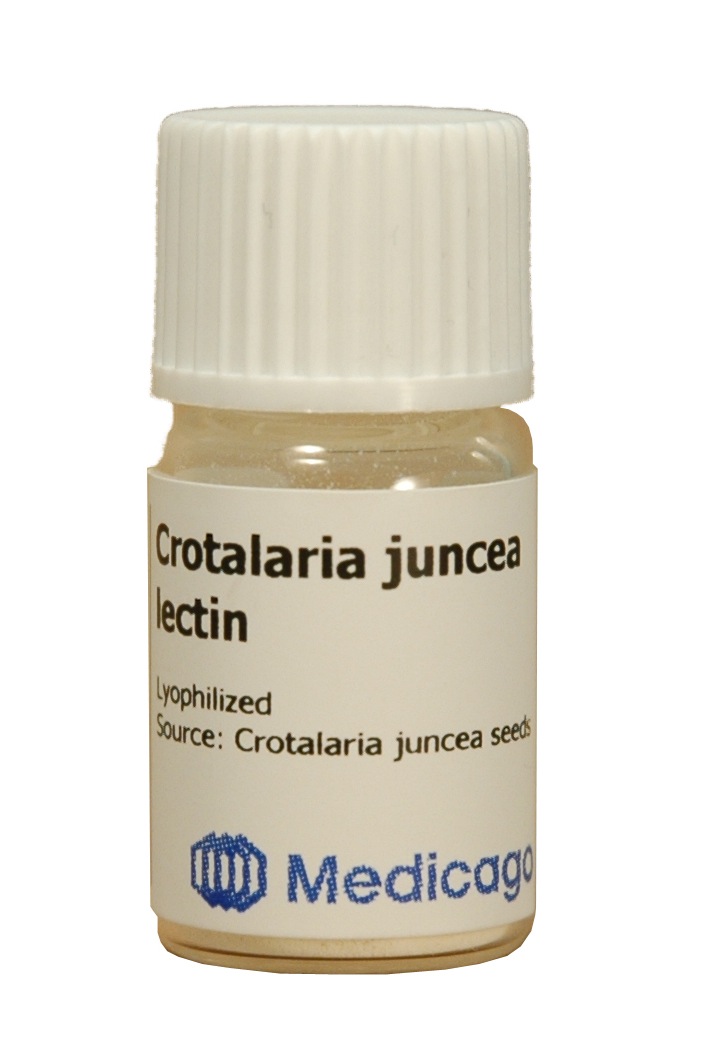Absolute Lectins
Crotalaria juncea lectin
*** For pack size 1g or more, please contact us to inquire about pricing
Features
- Ultrapure quality
- Non-specific blood group activity
- Sugar specificity: Gal > GalNAc
- Phytohaemagglutinin
- Lyophilized powder
Product description
Crotalaria juncea lectin is isolated from Sunn hemp seeds and purified by affinity chromatography. The lectin has a molecular weight of 124 kDa and is composed of four identical polypeptide chains of 31 kDa. The lectin has non-specific blood group activity (1). It displays specificity toward ß-galactosides and interacts with serum glycoproteins, cytochrome b5 and virus surface glycoproteins such as BVDV, influenza and bovine diarrhea (1).
Medicago’s Crotalaria juncea is supplied as a white to yellowish lyophilized powder. The purity of Crotalaria juncea lectin is determined by SDS- PAGE, which generates one single band at 31 kDa corresponding to the four identical polypeptide chains. The lectin is available in vials containing 50 mg or 10 mg powder. The product is to be used for laboratory work only.
Applications
- Studies of virus surface glycoproteins
- Purifying bovine diarrhea virus when immobilized an agarose gel
Directions for use
The lectin may be reconstituted with 2 ml of deionized water before use. Spin the vial gently until full dissolution. Aggregation is thought to occur in the presence of high concentrations of 2-mercaptoethanol. The solution may be reconstituted in this buffer to desired working concentration. In absence of lactose the lectin will polymerize and storage at pH 8.6–8.8 causes precipitation.
Shipping and storage
The product is shipped at -20°C however for over-the-day transport it may be shipped at ambient temperature. The lyophilized powder is stable for more than three years from production date when stored below -20°C. After reconstitution with deionized water, the solution may be stored frozen in working aliquots for up to 12 months.
References
(1) Liener I. E., Sharon N., Goldstein I. J., (1986) The Lectins – Properties, Functions and Applications in Biology and Medicine.

